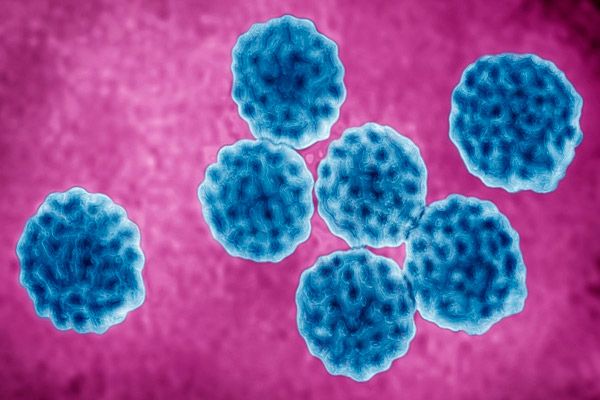Medical expert of the article
New publications
Human papillomavirus - what everyone needs to know
Last reviewed: 02.07.2025

All iLive content is medically reviewed or fact checked to ensure as much factual accuracy as possible.
We have strict sourcing guidelines and only link to reputable media sites, academic research institutions and, whenever possible, medically peer reviewed studies. Note that the numbers in parentheses ([1], [2], etc.) are clickable links to these studies.
If you feel that any of our content is inaccurate, out-of-date, or otherwise questionable, please select it and press Ctrl + Enter.
HPV (human papillomavirus) is a common sexually transmitted infectious disease. The virus is characterized by its ability to remain undetected for many years, but eventually various neoplasms, both benign and malignant, may develop.
The International Agency for Research on Cancer noted that the number of patients with cervical cancer has increased significantly in recent years, and one of the reasons for this may be HPV.
What is this virus? When infected, epithelial cells are affected, which begin to divide, resulting in papilloma (papillary growths). Doctors know more than 100 types of HPV, but 14 types have a high oncogenic risk, they are the ones that lead to the development of cervical cancer and some other types of cancer. It is worth noting that men infected with some highly oncogenic types of the virus are also at high risk of developing genital cancer. Low-oncogenic types of the virus provoke the growth of warts, condylomas, and benign formations in the respiratory tract.
With the development of HPV, papillomas can appear on mucous membranes, skin, internal organs, and genitals.
The virus is transmitted sexually, during oral-genital, anal sex. According to epidemiologists from the University of Washington, the largest number of types of the virus enter the body in the first years of sexual activity, but ultimately up to 90% of people encounter this unpleasant disease.
At Einstein College, a group of epidemiologists also studied HPV and found that in 91% of cases, the body copes with the infection on its own, without any special treatment - our immune system is able to suppress most types of the papilloma virus. Experts also note that immunity to the disease does not develop, so repeated cases of HPV infection are not excluded. The female body is less susceptible to infection with age, while men are at risk throughout their lives.
An international group of researchers has found that 30 to 70% of men are HPV-infected, and they are the source of the spread of infection among both women and men. The immune system of men copes with the virus longer, and scientists believe that this is due to men's sexual behavior.
The danger of HPV (highly oncogenic types) is that the virus provokes the growth of cancerous tumors (cervix, rectum, vagina, penis). When infected with the virus, there are usually no disruptions in the menstrual cycle or infertility. Hormonal surges (for example, in pregnant women) can accelerate the growth of warts on the external genitalia, but the virus does not affect the ability to conceive or bear a child.
Scientists have no doubt that HPV is closely linked to the development of cervical cancer, since HPV (one of many types) is detected in almost 100% of cases in patients.
It is worth noting that cancer develops if the virus is in the body for a long time - in relatively healthy women, the virus will provoke tumor growth on average in 15-20 years, in HIV-infected patients - in 5-10 years.
The virus goes through several stages in the body before the development of a malignant tumor begins - during this period, as a rule, the virus is detected and appropriate treatment is prescribed.

In 95% of cases, HPV can be eliminated (usually by removing the affected areas), but it is always worth remembering the risk of re-infection.
Read also: Vaccination against human papillomavirus (HPV)
Today, there are various tests to detect HPV in the body, but before the age of 25 there is a high probability of detecting the virus, which the immune system will cope with on its own, so doctors recommend taking the test after 25 years, with the exception of young girls under 18 who have an active sex life.


 [
[